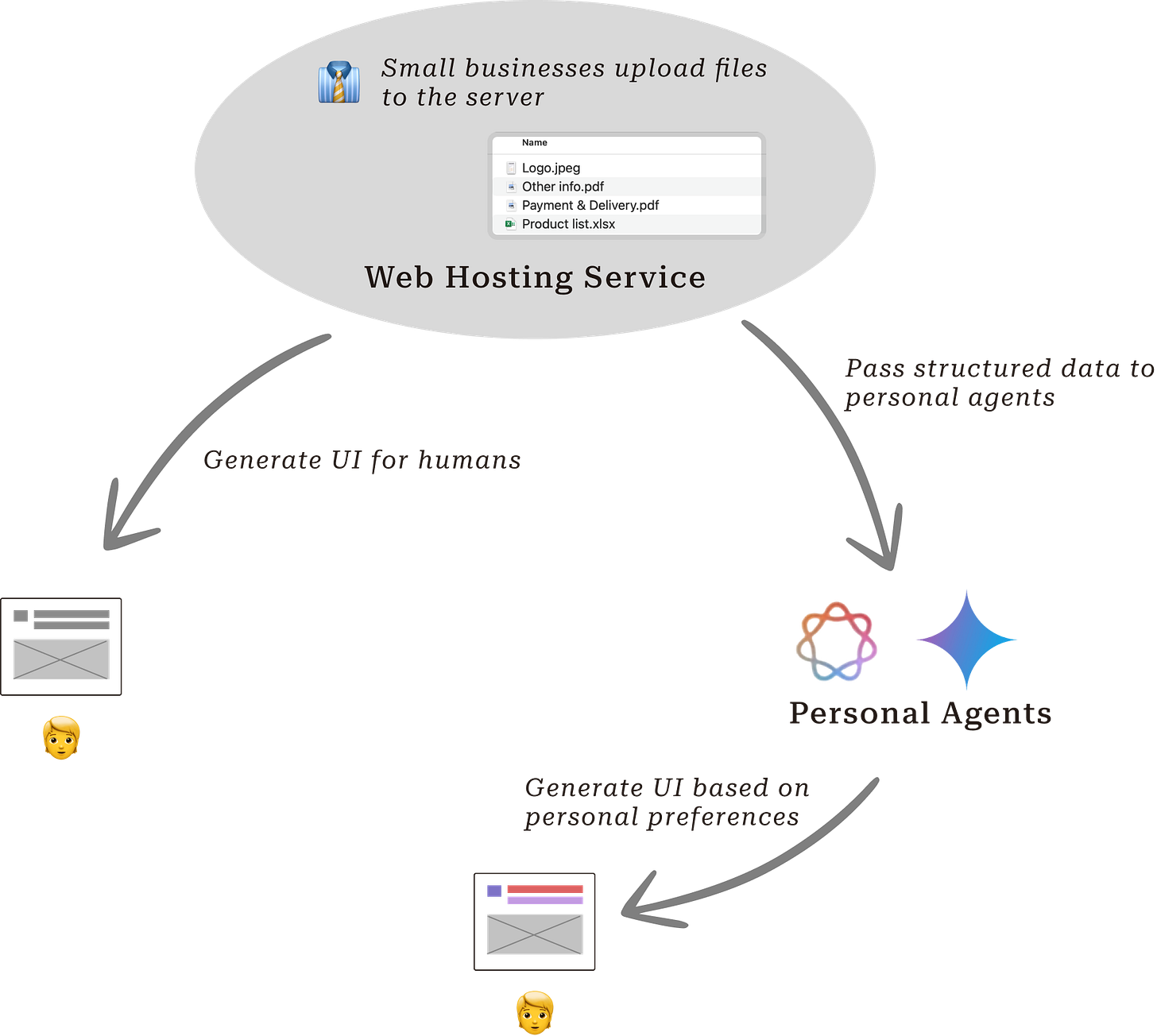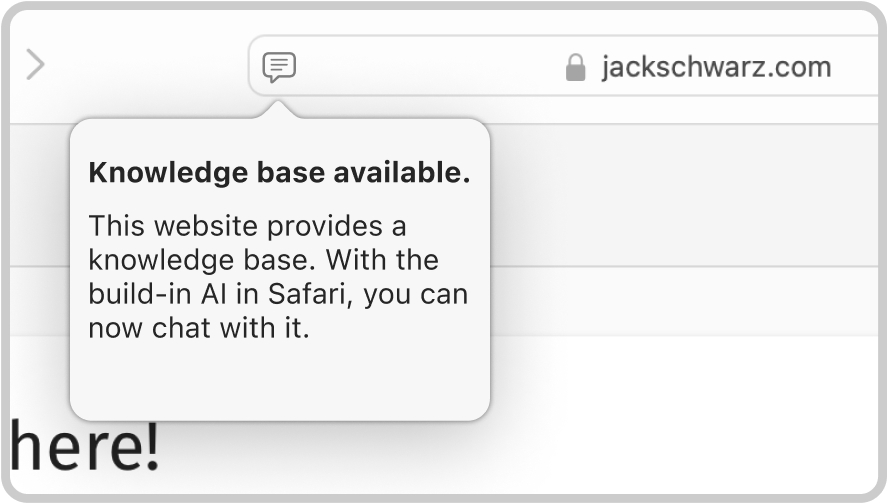Two potential intermediate agents: Web Hosting Service and Browser
Amazon Marketplace and Gucci
Many small businesses can’t afford to develop and maintain their own websites, so they upload the information and images of their products on Amazon. Based on that, Amazon generates product pages and even microsites. These pages may not be pretty and are often resemble others on Amazon, but they are cost-effective and allow small businesses to leverage Amazon’s vast customer base.
In contrast, companies like Gucci are wealthy and care a lot about their brand, so they spend a lot of money to design and build their own websites. In the age of AI, these two types of businesses are likely to adopt different strategies: small businesses will try to benefit from existing AI services, while companies like Gucci will integrate their own AI solutions.
AI-powered Web Hosting Service
One potential AI service for small businesses could be a Web Hosting Service. By simply uploading the product list, business introduction, and other related files, powerful AI could generate an entire website and inform all search engines and AI agents.
This service would display the website to human visitors and pass all data to personal AI agents, allowing them to generate personalized UIs for end users. As people will use personal agents to handle almost everything in the future, small businesses will have various entry points rather than being overly dependent on a single platform like Amazon.
Next generation of browser engine
Another potential agent is the browser. If you’re familiar with the browser engine, you know its main job is to convert HTML code into interactive visual elements. For example, it can translate following code into a button:
In the future, AI models could be small enough to be embedded in the browser engine, unleashing many possibilities. One obvious application is the chatbot. Inspired by ChatGPT, many websites have started integrating chatbots, but why should every website build a chatbot if the browser can do the job? A website could simply add a few lines of code:
When the browser detects this code, it will quickly read all the “knowledge” from the website and prepare a chatbot, allowing users to chat with the website from the sidebar:
We can also imagine a “Designer Tool” in the browser: it could compare the current webpage with your design, ensuring the quality of the implementation. It could also help double-check the text on the webpage according to your writing style guide.
Even if we have powerful AI agents soon, people will need time to get used to them. Intermediate agents will help smooth this process. While they may eventually be replaced by personal agents (will we still need a browser in the future?), they will gradually improve people’s lives and help them become familiar with AI.






